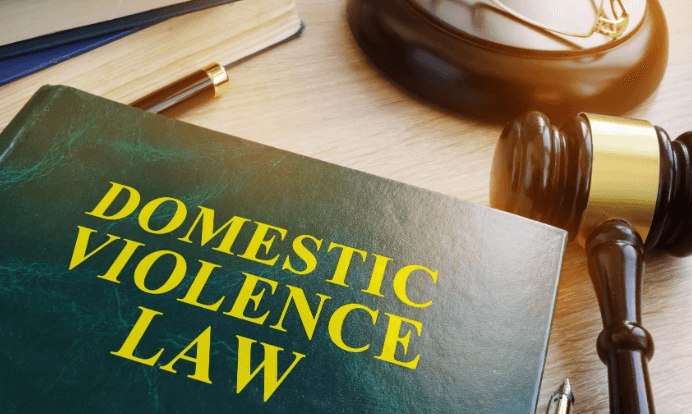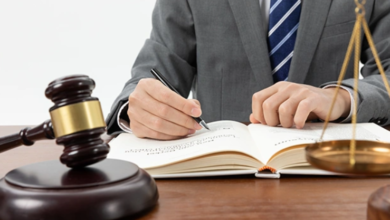A Comprehensive Guide to Domestic Violence Lawyers and Survivor Advocacy

Key Takeaways
· Insight into why legal assistance is vital for survivors of domestic abuse.
· Guidelines for recognizing signs of domestic violence and taking protective measures.
· Explanation of legal procedures such as obtaining restraining orders.
· Advice on choosing the right domestic violence lawyer fit for the survivor’s case.
· Overview of financial support and psychological health resources for survivors.
· Discussion about the role of advocacy and policy in protecting survivors’ rights.
Table of Contents
· Identifying the Signs of Domestic Abuse
· Steps for Survivors to Take After an Incident of Domestic Violence
· Understanding Restraining Orders and Their Impact
· Working with Domestic Violence Lawyers
· Building a Domestic Violence Case: Evidence and Testimonies
· Financial Considerations for Survivors Pursuing Legal Action
· Navigating Child Custody and Support in Domestic Violence Cases
· The Psychological Impact of Domestic Abuse Legal Proceedings
· Advocacy and Policy Changes Affecting Domestic Violence Law
· Conclusion – Moving Forward for Survivors
The Importance of Legal Representation in Domestic Violence Cases
For survivors of domestic violence, engaging the legal system can be as daunting as it is crucial. With emotions running high and the potential for further victimization, the need for a compassionate yet assertive domestic violence lawyer becomes evident. Lawyers specializing in domestic violence cases are not just legal representatives but advocates, confidants, and an essential bridge to a world where justice is pursued diligently and respectfully. With their expert understanding of the law, they guide survivors through a system that, while designed to protect, can feel foreign and intimidating to those already bearing the weight of trauma.
Legal representation for domestic violence cases goes beyond court appearances. Skilled attorneys help survivors understand the protective laws applicable to their situation, explore various legal options, and prepare for the road ahead. Essentially, they protect survivors’ rights, ensuring that the legal outcomes align with the best interests of those they represent. Moreover, the presence of an attorney can send a strong message to the abuser that the survivor is taking back control. This alone can be a transformational step towards empowerment.
Identifying the Signs of Domestic Abuse
Recognizing the signs of domestic abuse is the first critical step toward seeking help. These signs are not always visible bruises or scars; they can also manifest as fear, anxiety, or depression. Abusers may exercise control through isolation from friends and family, intimidation, and financial control, leaving survivors feeling helpless. It is vital for friends, family, and even the individuals themselves to recognize these signs and understand that no form of abuse is acceptable.
Allies play a significant role in helping survivors acknowledge the abuse and find the courage to seek help. Resources like hotlines and online support platforms are crucial, offering immediate assistance and guiding survivors and concerned acquaintances toward appropriate actions. Further information on identifying signs of domestic abuse can be directly gleaned from sources that highlight various forms of domestic violence and showcase support systems in place.
Steps for Survivors to Take After an Incident of Domestic Violence
In the wake of domestic violence, prompt action is often necessary to secure one’s immediate safety. Seeking refuge with a confidant or at a dedicated shelter can provide a safe environment to begin processing the event. Medical attention is of utmost importance; even if injuries are not visibly pressing, a medical evaluation creates an official record that can be indispensable should legal action ensue. These medical reports can serve as vital evidence to corroborate a survivor’s account of the abuse.
Documenting the incident meticulously is a step that cannot be overstated. A detailed account of events, preserved communications, and photographic evidence build a solid foundation for any legal action that might follow. Additionally, a well-thought-out and rehearsed safety plan can provide survivors with the practical steps needed in future danger, instilling a sense of preparedness and agency.
Understanding Restraining Orders and Their Impact
Restraining orders offer a layer of defense by legally preventing an abuser from contacting or coming near the survivor. The survivor must file a petition, backed by evidence of abuse, to obtain one. Once granted, the restraining order acts as a barrier, with legal consequences for the abuser should they attempt to breach its terms. Such an order’s symbolic and practical weight often provides survivors the necessary space to regroup and plan their next steps in a safeguarded environment.
Working with Domestic Violence Lawyers
Collaborating with the right domestic violence lawyer can be the turning point in a survivor’s journey. A lawyer’s support can alleviate some of the immense pressure survivors endure. Experienced domestic violence attorneys understand the law’s inner workings and approach their clients with sensitivity and respect for their situations. When choosing a legal ally, survivors should seek lawyers with a solid reputation for handling such delicate matters, fortified by understanding and compassion for the trauma endured.
Read also Bereal 20m Daus Apptopia Bereal 6m
Building a Domestic Violence Case: Evidence and Testimonies
Evidence plays a pivotal role in establishing the facts of a domestic violence case and influencing its outcome. Survivors are encouraged to gather all possible evidence, including but not limited to physical evidence, digital communications, and detailed journals of events. This documentation can serve as the cornerstone of the legal case. Testimonies from witnesses also bear significant weight, providing additional perspectives on the abuse that can corroborate the victim’s claims. However, the privacy and safety of the witnesses must be upheld to prevent potential retaliation or intimidation.
Financial Considerations for Survivors Pursuing Legal Action
Survivors of domestic violence may face financial barriers when seeking legal representation. Legal processes can incur significant costs, potentially adding to the financial strain already experienced due to the abuse. However, there are avenues for financial relief specifically designed to aid survivors in their pursuit of justice. Aid programs and pro bono services ensure survivors have access to the legal support they require, regardless of their financial position.
Navigating Child Custody and Support in Domestic Violence Cases
Domestic violence has profound implications on child custody and support determinations. Courts weigh these factors heavily, always considering the child’s best interest. In these complex scenarios, an attorney who competently handles the sensitive intertwining of family and criminal law becomes an invaluable asset. Effective legal counsel will guide survivors through the intricacies of these proceedings, prioritizing the well-being and safety of the survivor and the children involved.
The Psychological Impact of Domestic Abuse Legal Proceedings
Legal proceedings can retraumatize survivors as they navigate the complexities of the justice system. The stress of revisiting the abuse, coupled with the pressure of legal strategy and testimony, can be overwhelming. That’s why psychological support should be considered an integral component of a survivor’s journey through the legal process. Counseling and therapy provide coping strategies and can empower survivors to reclaim their narrative and work toward healing.
Advocacy and Policy Changes Affecting Domestic Violence Law
The landscape of domestic violence law is constantly evolving thanks to dedicated advocacy and policy reform efforts. Legal advances in protection orders, custody laws, and sanctions against abusers reflect society’s growing understanding and intolerance of domestic violence. Crucial statistics and insights from sources elaborate on the strides made in improving support and legal frameworks for survivors.
Conclusion – Moving Forward for Survivors
Recovery from domestic violence is a multifaceted process that involves more than just the cessation of abuse. It’s a journey back to self-sovereignty, peace of mind, and a sense of normalcy. Community resources, legal advances, and survivors’ strength contribute to this journey. With each step forward, a statement is made—a declaration for a life free from violence and full of possibility.




